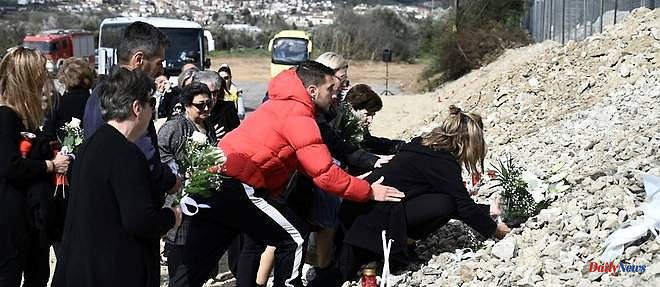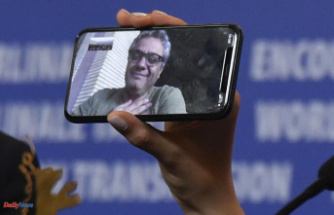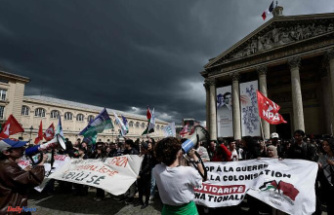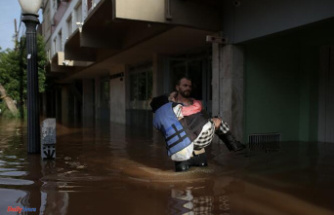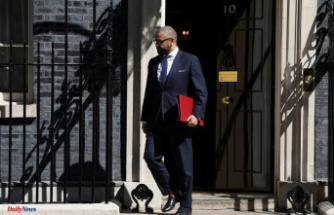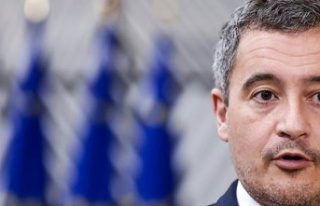Greek justice on Thursday launched criminal proceedings against other suspected perpetrators of the train disaster as the Prime Minister, shaken by the anger that is brewing in the country, promised "absolute transparency" in the investigation.
Nearly nine days after this train collision that left 57 dead, families and friends of victims gathered at the scene of the accident, in Tempé, on the occasion of an Orthodox religious ceremony.
They left photos of their loved ones and candles near the train tracks.
Devastated by grief, the mother of a 34-year-old victim collapsed as she left a bouquet of flowers. "I lost my child, why?" she asked.
"Our soul is bleeding. We cry from morning to night," Maria Giannouli, 75, from the region, told AFP.
After the station manager of Larissa, the city closest to the scene of the collision, placed in pre-trial detention on Sunday, three other railway employees are now being prosecuted in particular for manslaughter by negligence, according to a judicial source at the AFP.
Two of the three are incriminated for having left their workstations earlier than expected on the evening of February 28 before the head-on collision between a passenger train linking Athens to the second city of the country, Thessaloniki (north), and a convoy of goods to some 350 km north of Athens.
The head of the Larissa station, Vassilis Samaras, found himself alone at the controls that evening when, according to the Greek press, he had only a few months' experience in this position.
All face sentences ranging from 10 years to life in prison, according to media reports.
But besides human error, it was the serious shortcomings in the safety system and the dilapidated state of the railways that were designated to explain this accident on a line that was then very busy due to returns from a long weekend in Greece.
These failures against a backdrop of the decline of public services, of which many Greeks complain, have brought tens of thousands of people to the streets for eight days.
At the cry of "Assassins!", they demand accountability from the leaders accused of negligence. In the processions that invaded the streets of the country's major cities on Wednesday, calls for the resignation of the government flourished.
As general elections loom, Prime Minister Kyriakos Mitsotakis is trying to address the wrath of a population that has largely lost faith in institutions since the 2008-2018 financial crisis.
During a council of ministers, the conservative promised "absolute transparency" in the investigation in order to "detect flaws" in the transport system.
A promise in the form of an attempt at appeasement when, in recent years, Greek justice has been accused of bias in several resounding scandals.
The Prime Minister, in power since 2019, also pledged to take "immediate action to improve the problematic situation in rail transport".
And he vowed to "move heaven and earth" to ensure improvements were made to safety systems on train lines.
Without any alert being triggered, the two trains traveled for several kilometers on the same track before colliding head-on.
Since then, Greeks have held their leaders to account with a protest movement that culminated on Wednesday when some 65,000 people demonstrated across the country, including more than 40,000 in Athens.
Some rallies were marked by violent clashes between police and demonstrators.
The head of government, who must face the polls by the summer, is crushed for having been slow to recognize the malfunctions in the rail network, initially attributing this accident to "a tragic human error".
Thursday he for the second time asked forgiveness from the families of the victims, assuring that it was not necessary to "hide behind a series of human errors".
"We are all responsible, we must have the courage to admit it," Mr Mitsotakis continued.
09/03/2023 16:58:13 - Athens (AFP) - © 2023 AFP

